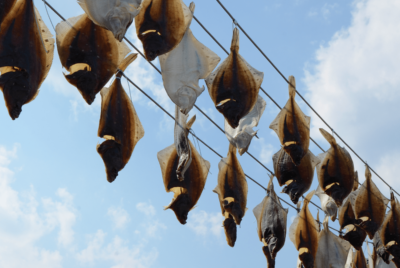News
Topics
Year
Nereus director (science) William Cheung (UBC) and Thomas Frölicher (University of Bern) are co-authors on the newly released Special Report on the Ocean and Cryosphere in a Changing Climate (SROCC) Summary for Policymakers (SPM). It was approved and presented at the Intergovernmental Panel on Climate Change (IPCC) on September 25, 2019.
Vatosoa Rakotondrazafy receives the prestigious 2019 Whitley Award from The Whitley Fund for Nature (WFN) for her work with traditional small-scale fishing communities throughout Madagascar. Vatosoa previously worked with Nereus Program co-directors Yoshitaka Ota (policy) and William Cheung (science), and program manager/research associate Andrés Cisneros-Montemayor as a Nippon Foundation DOALOS fellow at University of British Columbia in 2015.
Meet Nereus’s new research fellow Frédérique Fardin, who is working toward her Ph.D. researching mangrove forests throughout South East Asia and the Caribbean at the University of Cambridge/UN Environment World Conservation Monitoring Centre (UNEP-WCMC). You can briefly learn about her background and previous work experience in the Caribbean here.
Nereus Fellow Brooke Campbell (University of Wollongong) wrote a blog about leaders among the Pacific Islands coming together to create policies to protect their coastal fisheries and resources for future generations of Pacific Islanders, and how they are monitoring and evaluating the progress of such policies.
Nereus Research Associate Lydia Teh (University of British Columbia) writes a blog about the Bajau Laut in Malaysia and their struggles with fishing and way of life. She discusses the balance between marine biodiversity conservation and the social side of the Bajau Laut communities, to include securing basic rights such as food, shelter, education, and an adequate standard of living.
Is the ocean a biological continuum or are there distinct ecological units? Nereus researchers are delving deep into this question, exploring how climate-change will change the answer and untangling what it will all mean for the ocean resources humans rely on across the globe.
Halibut, sole and other flatfish are household names around the world. But that might not always be the case. New paper finds that climate change will drastically reduce flatfish numbers and alter species distributions by hundreds of kilometers by the end of the century.









